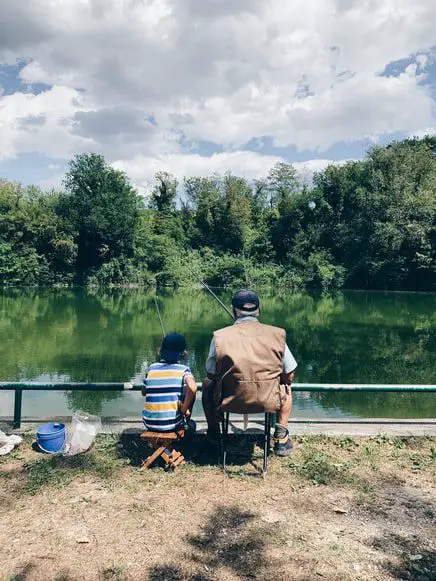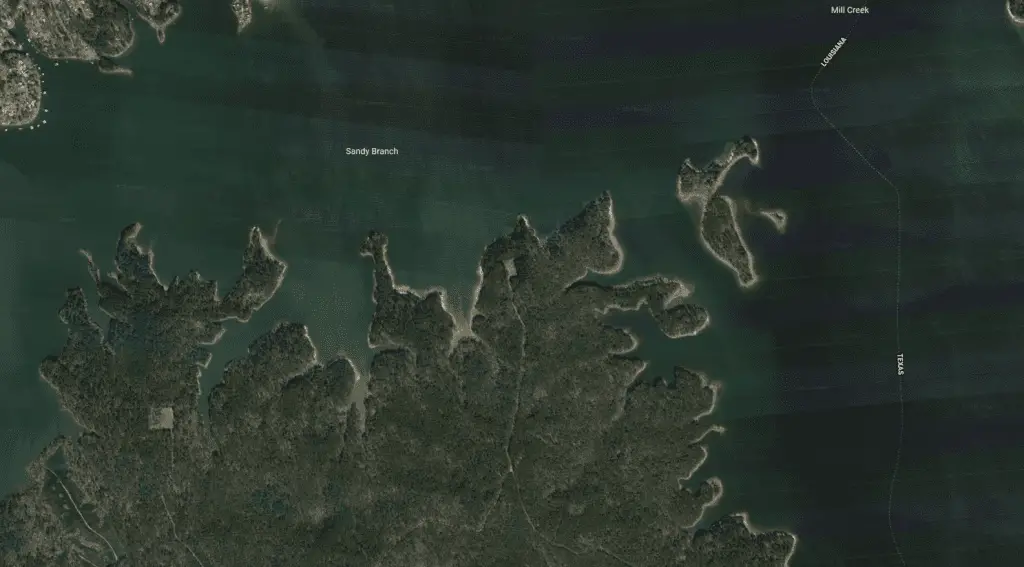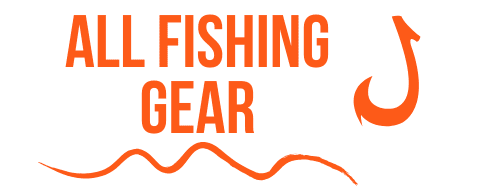To find fishing spots near you, utilize online resources like Fishbrain, Google Maps, or local fishing forums. Seek advice from local tackle shops, fishing clubs, or anglers in your area. Additionally, explore nearby lakes, rivers, and coastal areas, and pay attention to local fishing reports and regulations.
Beginner anglers all usually run into the same problem once they get started in the sport of fishing—finding good fishing spots. If you live in a relatively populated area where most of the lakes and ponds are privately owned, your choices are significantly narrowed to the few public lakes that might exist nearby.
If you’re stuck wondering how you can find good fishing spots within a reasonable distance from where you live, we’ve compiled this handy guide to help you get started in your search.
Table of Contents
Know Your Goals and Limits
- What kind of fish are you trying to catch?
- Do you have a boat, or will you be fishing from the shore?
- How far are you willing to drive?
These are all the questions you should ask yourself when you start thinking about finding good places to fish near your location. It’s highly important that you lay out the goals you have for your fishing trip, as well as some of the limitations you might have that you’ll need to consider.
Start by considering what kind of fishing tackle you have and the types of fish you’re able to catch with it. If you’re using a medium or heavy rod, you can probably go after most fish in your area without any problem, but you’ll obviously be limited when it comes to catching anything small such as perch, bluegill or other kinds of panfish species.
If you’re fortunate enough to own a boat or have access to one, this will greatly expand the lakes you’re able to fish and the amount of water in those lakes you can access. This also goes for kayaks as well, which is another outstanding way to get access to more water on local lakes and rivers.
For anglers who might be relegated to fishing on foot, don’t think you can’t catch trophy-sized fish just by walking around the banks of a nearby lake or river. The biggest bass and catfish I’ve ever landed have all come when I was determined to hike into a seldom-fished area on foot and give it a shot.
1. Use the Internet
This is one part of the process that you’re already doing since you’ve managed to find this article. The internet is often an angler’s best friend as it allows you to access seemingly endless amounts of information related to the many different kinds of fish species out there, as well as all kinds of other info about gear, tackle and other areas of importance.
When it comes to finding a good spot to fish near you, using the internet is often the best place to start. I typically browse any fishing forums, social media groups, and pages related to fishing in my area. I also do this when I’m planning to travel to a new area and I’m looking for good information on possible fishing spots that are easy to get to and have plenty of fish to catch.
Plenty of online forums, message boards, and social media groups are specifically devoted to connecting anglers and letting them discuss local bodies of water. You can also find a wide range of fishing apps specifically made for smartphones that will connect you to anglers willing to share information on good places to fish.
Many times, anglers in these apps or groups are more than willing to share their knowledge and expertise on great local fishing spots and how you can get to them. Just don’t expect them to give away their secret fishing spots on each particular body of water.
2. Follow the Rules
During your search process, it’s very important to make sure to follow any rules and regulations about any body of water you plan to fish. If you’re going to be crossing state lines, or will be inside city limits, it’s crucial to be aware of any laws or licensing related to fishing.
It can sometimes be frustrating to find out that you’re not able to use a gas-powered motor or a certain type of hook in a particular body of water, but these rules are in place for a reason, and it’s better to follow them than to risk being fined or suffering other legal ramifications for not doing so.
3. Get a Boat or Kayak
As we’ve already touched on, having a boat, kayak or canoe will open up a new world of possibilities for anglers of all skill levels. When you’re fishing without any of these and you’re restricted to being on foot, the amount of water you’re able to fish is severely limited to that which is around the shoreline. This is fine if you’re fishing in a narrow river or stream, but for fishing in bigger lakes, it’s much better to have a vessel that will allow you to fish the whole lake.
If you do have a boat or kayak, you can look for launch points or boat ramps that will allow you to get your boat into the water. Most public lakes have several boat ramps and having a fishing kayak makes it possible to launch into nearly anywhere you’re able to carry or drag it. However, if you’re not able to have access to a boat or kayak, don’t let this stop you from finding a good fishing spot.
4. Ask the Locals

I often like to use the old-school method of asking the locals when I’m looking for a good place to fish near me. Just by visiting a local store or chatting with someone you come in contact with opens up a world of possibilities, especially if you meet the right person.
Many anglers often find that the best possible source of information for good fishing spots, and other important fishing tips, come from one place—the local bait shop. Unfortunately, thanks to online sales of lures, rods, reels and other gear, the smaller mom-and-pop bait shops are dwindling away as they can’t compete with online retailers. However, there are still a good number of bait shops if you look hard enough to find one.
If you can find a good local bait shop or a place that sells boats or even just sporting goods, you can ask some of the people inside for tips on good places to fish. The salespeople at the store are always a good source for information about great fishing spots as they tend to have a pulse on the local fishing scene. If the store’s workers aren’t much help in finding a great fishing spot, you can always turn to their customers.
There have been times when I’ve found myself in a small bait shop in an area I’m unfamiliar with, only to strike up a conversation with a fellow customer and discover a hidden gem of a fishing spot.
If you’re someone who isn’t as outgoing as others, it can be intimidating or even embarrassing to ask for fishing spots from a stranger. Just remember that anyone you ask in a bait shop or a similar location will be someone that shares the same level of interest you do when it comes to fishing and they are almost always open and willing to help a fellow angler.
5. Use a Map
Another approach I like to use is one that’s somewhat unconventional, but it typically works out in more cases than you might expect. Thanks to online maps and charts like Google Earth and others, we can pull up an overhead view of any place in the world. If you do this for your immediate area, you can get a sense of the lakes, rivers and ponds near you.
Once you take a good, long look at these online maps, you can find all kinds of new fishing spots that you might have never been aware of before. Try to focus first on public lands and the lakes, rivers or ponds that are located on public property. These are all usually open for anyone to go and fish in them as long as you abide by any rules and regulations within that particular property.
Public land is also often good for finding access points to large lakes, reservoirs and rivers where it can be tough to navigate your way through private property and get on the water. If you do this, you can expect to traverse some remote areas, so stay prepared and be careful that you don’t get into some rough terrain.

6. Cold Calling
I’ve always found that talking directly to someone is the absolute best way to get what you’re looking for in any aspect. Sometimes, having access to an incredibly good fishing spot comes down to knowing the right people. If you’ve been fishing for a decent amount of time, you’ve probably realized that private lakes are often the best places to wet a line and catch more and bigger fish.
If you use an online map to identify some decent-sized private lakes and ponds near you, there are a few ways you can get permission from the property owner and secure some new fishing spots for yourself.
There are online resources you can use to find out who owns a particular piece of property. It’s possible to check with the local county clerk, library, or ask a real estate agent and get a phone number or address for the owner. Once you have their number or another way to contact them, you can politely ask to fish in the lake or pond.
I’ve actually done this many times and I can assure you that you’ll get a variety of responses, including people that are downright rude. However, I’ve also found some spectacular places to fish using this method. It also helps if you offer to clean up the property in some way like picking up trash or cleaning out an overgrown trail in exchange for fishing rights to the lake.
7. Ask In-Person
Lastly, you can always try knocking on the property owner’s door if this is something you’re comfortable with. Just like cold calling, this method will usually yield various results and there’s always the chance that someone will slam the door in your face.
If you’re going to do this, it’s a good idea to look presentable and try to show the person that you’re a good person and that you’re simply looking for a place to fish. You might be surprised at how well this method works as some people won’t mind you fishing in the lake, especially if you make it a point to help clean up any trash or help the person out in some way.
If you live near a large lake or river where there are public docks, you can also go and hangout or fish around the dock and ask anyone you see fishing solo if they mind if you tag along. Some people might think this is a bit crazy, but it tends to work out much better than you think in a lot of cases.
Not many people choose to fish by themselves and you can strike up a great friendship and find a new fishing buddy if you’re willing to open up and ask the right person. Use these methods with caution and bring a friend with you if you’re somewhat less outgoing.
Conclusion
By using these methods, you should be able to find a good spot to fish in your neck of the woods. The most successful anglers have always been those who show a bit of ingenuity in getting things done. If you try these methods and use a bit of creativity or think outside the box—and follow the rules—you’ll be able to find that outstanding fishing spot you’re looking for.
